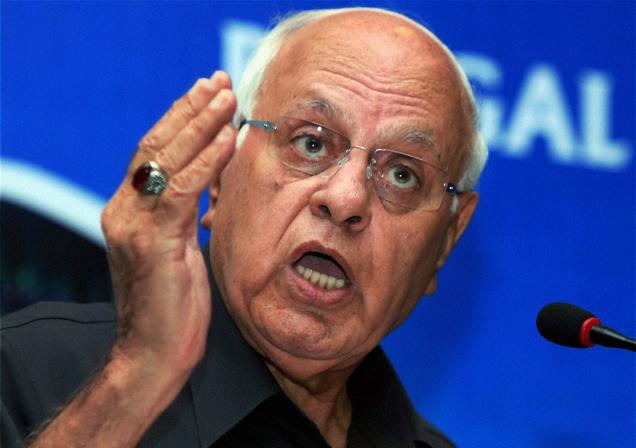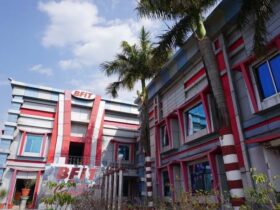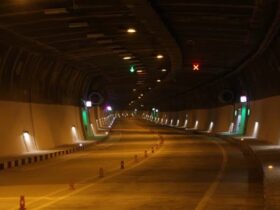Saleema Begum was like any other promising and caring mother of six children. After growing up in abject poverty full of challenges, she was on a mission to ensure comfortable and supportive life to her family. Saleema, 30-years old-then, was mother of four daughters living at her native place Tilawari village of Uri sector near Line of Control (LoC)-the line that divides Kashmir into two parts of India and Pakistan.
In 1990’s the village, because of a large scale shelling across the border between India and Pakistan, suffered enormous damage in terms of human lives.
On a hazy April 6, 2001 afternoon, Saleema was collecting wooden pieces to light up her hearth (Chulha),outside her house made of mud and grass. While cutting and collecting the wood, Saleema would always notice the scale of destruction caused by mortar shells in her village.
On the fateful day, she didn’t apprehend any trouble as roaring guns had fallen silent for almost nine days. “While I was cutting the wood, two army personnel came near to my Khotha (cottage) and asked for drinking water. I went inside my Dabb, a small kitchen, and came out with two glasses of drinking water and handed over to the Army personnel.
All of a sudden the silence broke out with heavy shelling again and one bullet hit my leg leaving me in a pool of blood and lost her leg.
Looking at her amputated leg, Saleema breaks down into loud sobs. “I have paid the cost of serving water to Indian Army without knowing that I was under observation of Pakistani Rangers who fired a bullet on me and made me disable for rest of my life.”
People living in border areas have paid high costs of being at border by loosing their limbs and leaving them to live a complete disabled life. The different shades of conflict that have dominated the border region of Uri for several decades now have seeped into the lives of women more than men.
Their everyday life has been affected in numerous ways. With no compensation received from any quarters, the women landmine victims continue to suffer the prejudices of an unjust society.
Ghulam Aziz Mir, the 90-year-old man narrates the tale of death of his first love and wife, Taaja Begum who stepped incidentally on a landmine and lost her right leg.
Taaja had gone to a nearby grazing field with the cattle and stepped on a landmine leaving her unconscious and in a pool of blood. She was taken to the Uri hospital and was later referred to Bone and Joint hospital in Srinagar where doctors amputated her left leg, leaving Taaja hopeless, heartless and off course lifeless.
“To get my beloved into life, I waited for a compensation from government. I knocked the doors of almost every office. I spent over 15000 borrowed money to prepare documents. Later I received Rs 1000 from government as a compensation,” says Mir with tears rolling down her wrinkled cheeks.
He just like other lovers misses her love of the life like anything. Taaja died four years ago.
We have more stories from villages located at the Blood-line (Khooni Lakeer).
Irshad Ahmad, an aspiring boy full of life, changed forever that too for the dark days ahead. Irshad, 15-year-old then, was a class 10 pass out from Silikote village located at a stones throw distance from LoC in Uri.
On November 1, 2001, Irshad was outside his home, sitting under the shade of a tree. He had ventured out of his home after a long time only to save himself from the heavy firing between two nuclear armed neighbours. Along with other 500 villagers, he had taken shelter in underground bunkers constructed by government.
“In the morning, I ventured out from the bunker after taking tea. I was having a look over the damage caused by mortar shells. All of the sudden heavy exchange of shelling took place and a shell hit my leg, which left me physically challenged,”.
Just two years after the incident, Irshad-a brother of five sisters, lost his mother Saaja Begum, who stepped on a landmine when she was grazing cattle in a nearby field.
A 70-year old Bashir Ahmad, village head (Lambardar) of Tilawari recalls the history of this mountainous village. “One Rehman Joo died after he stepped over a landmine in 1970. Ghulam Qadir lost his leg same year and there is a long list of people who died or suffered fatal injuries in land mine blasts.”
He claims that the conflict has consumed scores of lives with majority of them falling victims to the land mines planted in and around the habitation.
While the landmines had already taken a heavy toll on people’s lives, Indian army in early early 1990’s felt the pain and started taking precautionary initiatives. They encircled the ‘deadly zones’ with razor wires to restrict the movement of people. But it still poses threat to the kids playing in the open fields. The major source of livelihood for the border residents is cattle raising.
Villagers fear to graze their cattle in the fields as in so many incidents in past they have lost both live stock and beloved ones. Wild animals have also been the victims.
“Several years ago, a leopard was ripped apart after it stepped on a landmine. His body parts were slinging on trees,” says a villager.
As on now the guns are almost across the LoC are silent, but can roar anytime. Villagers have a simple demand, demanding lifting of curbs from army. The landmines and wires installed around the village have virtually turned it into the highly fortified zone and restricts the movement of people and cattle. Danger is everywhere.
The ceasefire agreement had brought paradigm shift in Indo-Pak relations and had paved way for historical Confidence Building Measures, but still the common people of this remote area see no peace.
“Ceasefire only protected our lives but didn’t assure any well being. We have around 250 kanals of land under army occupation but till now we have never received any compensation. The occupied orchids had walnut, pear plants sufficient for our quality life, but unfortunately we are deprived from our own land,” says Muzzafar-a resident of
Hathlanga village near LoC.
Deforestation has contributed fatally to the menace of landmines. Decrease in the number of trees has led to soil erosion due to which the landmines laid along the border get dislodged from their original position, making it difficult to detect and deactivate, which in turn causes further loss of life.
On border, landmines do not discriminate between men and women. Men can somehow take a step out with the support of crutches but the after-effects definitely have a more marked effect on womens’ mental and physical health.


















Leave a Reply